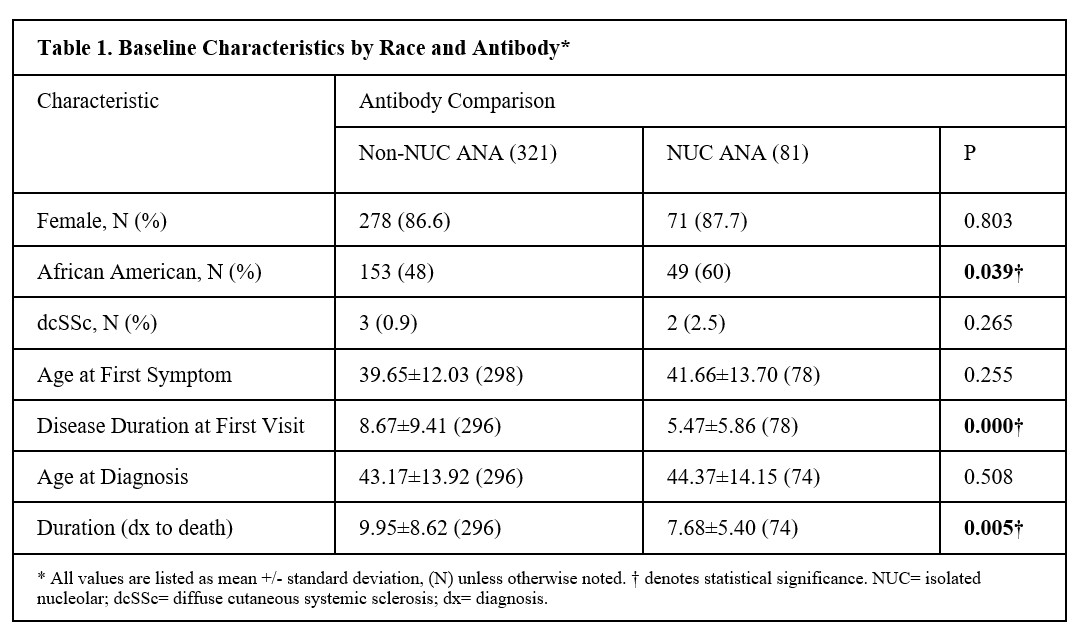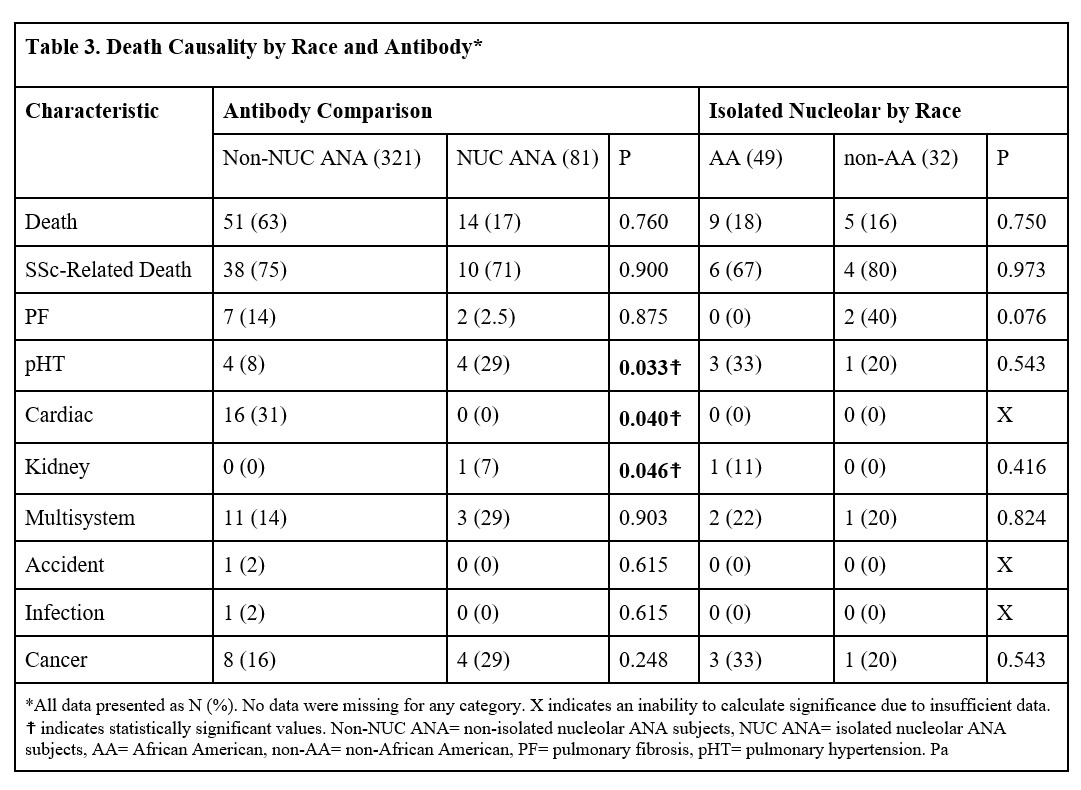Session Information
Session Type: Poster Session C
Session Time: 9:00AM-11:00AM
Background/Purpose: Systemic Sclerosis (SSc) patients with an isolated nucleolar patterned ANA (NUC ANA) make up about 15% of the SSc population, although the specific nucleolar antibody is not easily identified. We sought to characterize patients with an isolated nucleolar pattern ANA without other SSc specific antibodies and describe the clinical and laboratory features associated with this SSc subset.
Methods: A single-center, retrospective study of SSc patients as previously described (Moore, 2019) was used. African American (AA) and non-African American (non-AA) SSc patients were matched 1:1 based on sex, age, date, and disease duration at the first visit, and extent of cutaneous disease. Demographic and clinical features were compared by the presence of the antibody and race. Mortality risks were assessed by a Cox proportional hazards model with covariates of race and the presence of the NUC ANA.
Results: NUC ANA was seen in 81 of the 402 (20%) of the SSc patient, 49 (60%) were AA in the NUC ANA group compared to 48% in the non-NUC ANA group (p< 0.05) (Table 1). The NUC ANA patients presented with shorter disease duration at their first visit (p= 0.000) and developed more severe upper GI problems (p=0.041). They had more cardiac involvement, but not more severe pulmonary fibrosis(Table 2). Comparing AA patients in the NUC ANA group to the non-AA patients, the non-AA patients were more likely to have Raynaud’s with digital pitting scars (p=0.031) while African Americans were more likely to have pericardial effusions (p=0.043). Although survival was not different from NUC ANA compared to non-NUC ANA, more patients with the NUC ANA died of pulmonary hypertension(p= 0.033) and kidney disease (p=0.046)(Table 3).
Conclusion: Scleroderma specific nucleolar antibodies have not been easily characterized commercially except as an ANA with a nucleolar pattern. This study shows that 20% of our SSc patients had a NUC ANA and that AA had a higher frequency of NUC ANA. However, previous studies have shown more meaningful clinical associations with the specific nucleolar antibodies including anti-U3 RNP, (or fibrillarin), anti-Th/To, and PmScl. This study was not able to duplicate these studies using just the presence of a NUC ANA test. The newer commercially available multiplex line blot tests will likely be better able to more meaningfully classify SSc patients with a nucleolar antibody.
To cite this abstract in AMA style:
Elliott S, Moore D, Steen V. The Isolated Nucleolar Pattern ANA Antibody in a Systemic Sclerosis Patient Cohort [abstract]. Arthritis Rheumatol. 2020; 72 (suppl 10). https://acrabstracts.org/abstract/the-isolated-nucleolar-pattern-ana-antibody-in-a-systemic-sclerosis-patient-cohort/. Accessed .« Back to ACR Convergence 2020
ACR Meeting Abstracts - https://acrabstracts.org/abstract/the-isolated-nucleolar-pattern-ana-antibody-in-a-systemic-sclerosis-patient-cohort/



